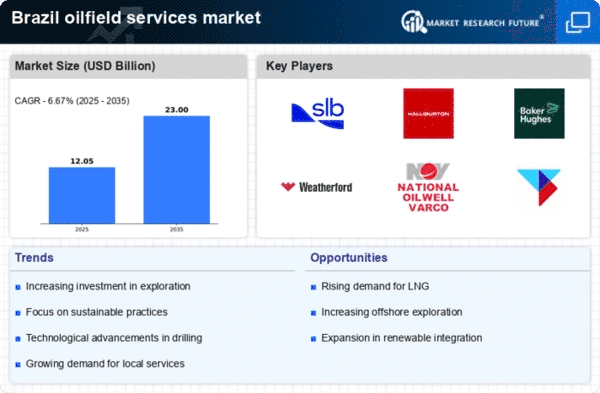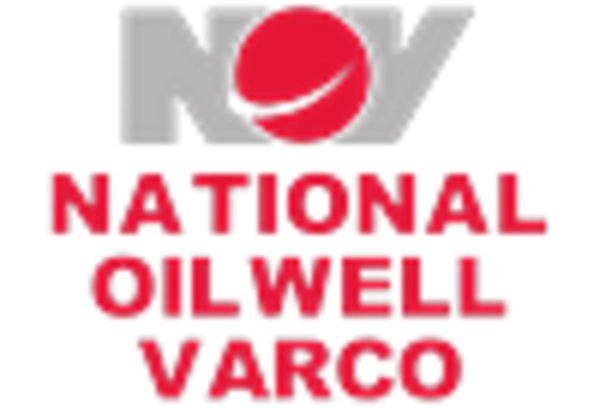Rising Energy Demand
The increasing energy demand in Brazil is a pivotal driver for the oilfield services market. As the country continues to industrialize and urbanize, the need for energy sources, particularly oil and gas, is expected to rise. In 2025, Brazil's energy consumption is projected to grow by approximately 3.5% annually, necessitating enhanced exploration and production activities. This surge in demand compels oilfield service providers to innovate and expand their offerings, ensuring efficient extraction and processing of hydrocarbons. The oilfield services market is thus positioned to benefit from this growing demand, as companies seek to optimize operations and reduce costs while meeting the energy needs of a burgeoning population.
Environmental Regulations
The tightening of environmental regulations in Brazil is influencing the oilfield services market. As the government emphasizes sustainable practices, companies are compelled to adopt environmentally friendly technologies and processes. In 2025, compliance with new regulations may require an investment of up to $5 billion in cleaner technologies and practices. This shift not only aims to minimize environmental impact but also enhances the reputation of companies within the oilfield services market. By prioritizing sustainability, firms can potentially attract investment and partnerships, positioning themselves favorably in a market that increasingly values environmental responsibility.
Technological Integration
The integration of advanced technologies in the oilfield services market is transforming operational practices in Brazil. Technologies such as artificial intelligence, big data analytics, and automation are increasingly being adopted to enhance efficiency and reduce costs. In 2025, it is anticipated that the adoption of these technologies could lead to a 15% increase in productivity across the sector. This technological shift allows service providers to optimize drilling processes, improve reservoir management, and enhance safety measures. As a result, the oilfield services market is likely to see a significant evolution in service delivery, driven by the need for innovation and efficiency.
Infrastructure Development
The ongoing infrastructure development in Brazil is a crucial driver for the oilfield services market. Enhanced transportation networks, including roads, ports, and pipelines, facilitate the efficient movement of oil and gas products. In 2025, Brazil's government plans to invest approximately $15 billion in infrastructure projects, which will likely improve access to remote oilfields and reduce logistical challenges. This investment not only supports the operational efficiency of oilfield services but also attracts foreign investment, further stimulating market growth. The oilfield services market stands to gain from these developments, as improved infrastructure enables more effective exploration and production activities.
Investment in Offshore Exploration
Brazil's vast offshore reserves, particularly in the pre-salt layer, represent a significant opportunity for the oilfield services market. The government has been actively promoting investment in offshore exploration, with recent auctions attracting substantial interest from international oil companies. In 2025, it is estimated that investments in offshore projects could exceed $20 billion, driving demand for specialized oilfield services. This influx of capital is likely to enhance technological advancements and operational efficiencies within the industry. Consequently, the oilfield services market is expected to experience robust growth as companies align their capabilities with the requirements of complex offshore operations.
















